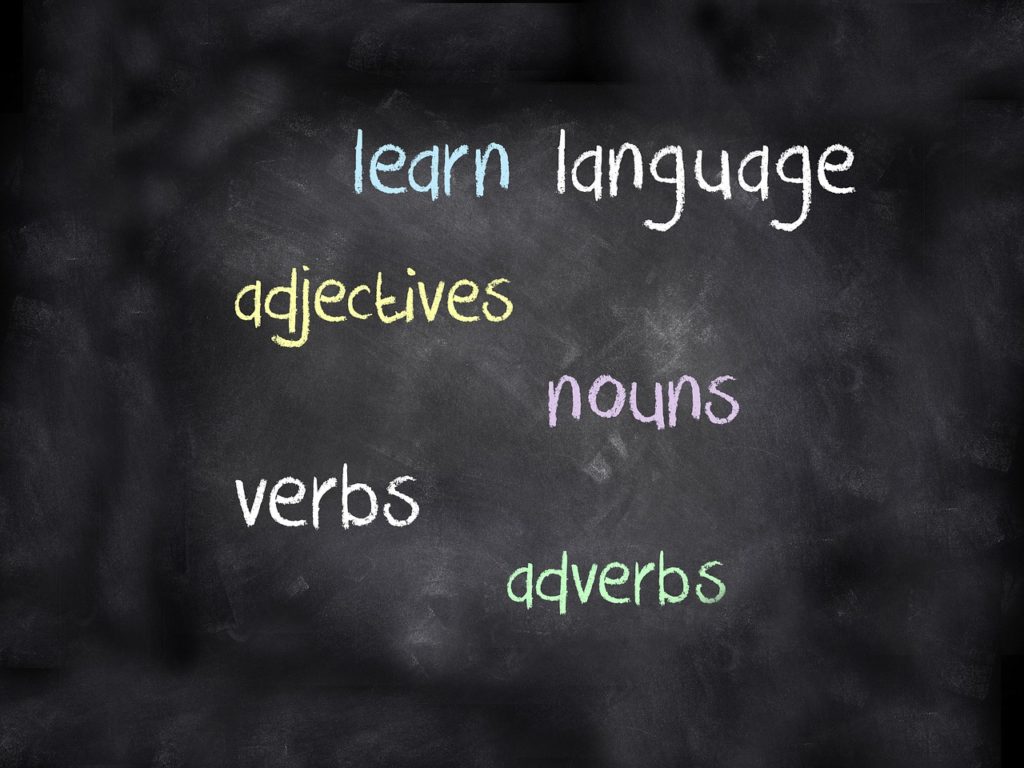
Professionalism: Correct language and numbers
How many of us remember our experiences from English Composition and Algebra classes in school? I remember my teachers always telling me to get my language and numbers right. Being told ‘Say that again, properly!’ or ‘Check your work!’, were ultimately to achieve this objective. Didn’t we go to school to ultimately build our knowledge and skills for later life?
Disclaimer: You will see the phrase’…getting language and numbers right…’ throughout this piece, which (tongue in cheek) contradicts the point being made. This is due to the ongoing battle between ‘prescriptive grammar’ and ‘descriptive grammar’. But all will be revealed at the end. 😆
Language

The case for English
We often say that English is the language of business and of success. The leading global companies require English as a key language for engagement. https://www.forbes.com/sites/dorieclark/2012/10/26/english-the-language-of-global-business/#1a62d781b57e
Some key statistics
Some say that English will be overtaken by Mandarin, Hindustani or Spanish in the near future. This will not happen. That is because native English speakers, and English as a Foreign Language (EFL) speakers, outstrip these other languages by between 36% and 200%. That gap is not closing, but in fact widening. https://www.babbel.com/en/magazine/how-many-people-speak-english-and-where-is-it-spoken/
Also, more countries across the world speak English than do not. More countries speak English as the official language (59), which is twice as many countries as the 2nd ranked language French. On the other hand, only two countries speak Mandarin and Hindustani respectively, as their official languages. https://en.wikipedia.org/wiki/List_of_languages_by_the_number_of_countries_in_which_they_are_recognized_as_an_official_language
When focusing on getting language and numbers right, my experience with the butchering of the English language lies on two ends of the spectrum. On the one hand, the youth appear to have created their own languages and abandoned standard English. Alternately, many professionals do not speak proper English, due either to poor training or being too lazy to be diligent. I all too often hear so-called professionals, failing to have even a basic command of the English language. No wonder young graduates can’t even string a comprehensible sentence together!
The Slippery Slope

Professionals_heading for a wreck 
The Youth_can be saved
From mastery to butchery
On the one hand, you have complex conjugation and vocabulary that we need to work on mastering as professionals. Even the best of us would struggle to get more the 10 of Jessica Stillman’s list from Inc.com correct. https://www.inc.com/jessica-stillman/the-20-most-abused-words-in-the-english-language.html. However, be it a journalist or poet, marketing executive or corporate leader; it is those who get it right, who tend to succeed. I must admit that I only got 8 correct on absolute understanding, and a still pitiful 12 on correct usage, by the way. But I continue to work and learn.
So, let’s focus on some examples of just plain butchering of language.
- ‘I was looking my glasses.’
- ‘The government will enable them introduce programmes in the ministry.’
- ‘It will enable Kenyan companies fast-track…’
- ‘My names are…’.
- ‘Irregardless’.
- ‘…prompting him to take matters into his own arms.’
Now, you’d expect this from the youth, who can be taught and trained to get it right. But in the mission to get language and numbers right, how on earth do you expect this from professionals, government leadership and even journalists?! All those examples come from the mainstream media or supposed “seasoned professionals”.
The mission
Correct language is important for clear and simple reasons. Failing in it will hold you back in several situations.
- Interviews.
- Public speaking.
- Writing reports and proposals.
- For both institutional, and professional qualification exams.
- Credibility in leadership.
However, I’m not a language snob. There is hope for salvation in the technical sphere, and that is numbers. That is the reason for the linkage between getting language and numbers right.
Numbers

Science, Interpretation or Confusion?!
What do you see above? Is it a rush of random objects, spewing out of a vortex? Or, do you identify the numbers and equations that you understand? Beyond that, is your mind trying to apply the complex equations hidden therein? At some level, even a basic level, we must learn to grasp the numbers relevant to the task we have at hand.
So, I had this Korean college-mate (or is it college mate?), who was able to get an almost perfect grade point average, without being fluent in conversational English. He got through his classes with a Korean-English dictionary, and skewed his choice of courses towards scientific and technical disciplines. Part of the reason for his success, apart from his dogged determination and hard work, was his proficiency with numbers. Numbers are a more universal language, that are more easily translated and adapted to. They are also neither subjective, nor subject to misinterpretation. I, and many others, like to say that numbers never lie. If you want to find the truth in anything, comb through the numbers and therein, you will find it.
Errors of Numbers
Once again, as with the English language, I often hear people butchering numbers. Maybe butchery is the new noble profession. 😆
- People have difficulty identifying numbers that they themselves are presenting, and that are blatantly illogical or incorrect.
- Currency is sometimes quoted either with confused, or without any scales or order of magnitude mentioned. https://en.m.wikipedia.org/wiki/Order_of_magnitude
- Different documents from the same source sometimes have differing figures in reference to the same point.
- The term, ‘the numbers just don’t add up’ is common when you actually calculate publicly announced statistical reports.
The minute you commit any of the above transgressions, you lose 100% of your credibility. Like what I just did there?! 😆 The thing with numbers is that they are either correct or incorrect; there is no in-between. If numbers look illogical at face-value, their underlying truth is almost certainly that they are incorrect.
The Fine Balance
Numbers and technology
Technology is the wave of the future. We could say that we have entered the technology age. Numbers drive technology, so, if you don’t understand numbers at some level, you are on the outside looking in. Getting your numbers right is non-negotiable.
Prescriptive versus Descriptive grammar
Language is more fluid because of ‘descriptive grammar’. This is simply the use of new words, terms and expressions. Descriptive grammar must be in widespread enough use to be colloquial, and then validated by a credible authority. In every instance nonetheless, butchering of the English language is inexcusable. Butchering the language, is the practice of not following basic rules that cause sentences to make sense, and thus have the speaker sound like they are either lacking in intelligence, or are too lazy to learn the language properly. However, it should be stressed, that poor grammar is only acceptable if you are an accomplished professional from a non-English speaking country, or if English is not the currency of your profession.
The best differentiation I’ve heard is that prescriptive grammar is where someone else writes the rules, and then tells everyone what they must follow; while descriptive grammar is where the rules follow the people. The rules look at what native speakers are using, and then that becomes the “correct” grammar. We must walk the fine line between prescriptive and descriptive; the former to maintain order and sensibility in society, the latter is for Gen-Xers, and even Millenials, not to become dinosaurs.
English and some notable EFL leaders
To be clear on this balance, if Toto Wolff, Akio Toyoda and Jack Ma speak better prescriptive English than you do as a native English speaker, know that you need to pull up your socks. It’s only political leaders like Vladimir Putin, Xi Jinping and Angela Merkel, who really have the luxury of casting English aside. You neither have that luxury, nor can you afford interpreters constantly at hand! But of one thing you can be sure, all six of them are supremely on top of their numbers.
Back to the disclaimer
Now back to my earlier disclaimer. I’ve repeatedly used the term ‘get your language and numbers right‘, and not ‘get your language and numbers correct’. That is the evolution of language through descriptive grammar. If I were to use the version with ‘correct’, on a Millenial (Gen Y) or Centennial (Gen Z), they would probably be quicker to switch me off. I’ve further used a couple of emojis (did these exist or was that word in our vocabulary when prescriptive grammar rules were being developed?) in this piece. Whilst inappropriate for formal submissions, with the growth of social media, we all need to adapt to these times and how our growing consumers and customers communicate.
But either way, professionally, always get your language and numbers right.
For strategic advisory that will leverage uncommon sense and drive your bottom line, get in touch with us on [email protected]
Follow on:



